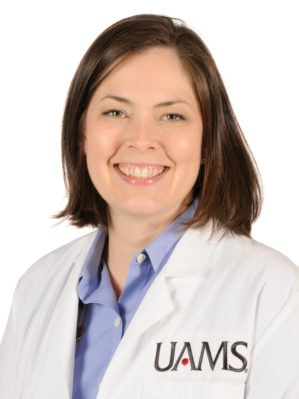Culinary Medicine: Paving the Way to Health Through Our Forks

Arkansas has some of the worst health statistics in the US, ranking 47th in the nation. Recent findings reveal that suboptimal diet is responsible for more deaths than any other risk factor nationally and globally. It is estimated that with improving eating behaviors, one in five deaths can be prevented, underscoring the urgent need for effective dietary interventions. Nutrition education in most medical schools is inadequate and UAMS is no exception. AAMC recommends at minimum 29 hours of nutrition education.
We envision culinary medicine as a cornerstone of our students and trainee’s education to prevent or improve management of chronic diseases, such as hypertension, diabetes, obesity, cancer, etc. Culinary medicine (CM) is an emerging, evidence-based discipline, which aims to positively affect public health by improving eating behaviors through integrating nutritional science with food preparation. Although there is no consensus definition of culinary medicine, the definitions proposed by existing programs include reducing the global burden of nutrition-related disease and reducing health care costs through delivery of basic nutrition information combined with instruction in practical food related skills. The intention is to help create positive behavior change by not just providing knowledge, but by teaching specific skills that aid in creating lasting change. Culinary is an evidence-based approach that includes simple nutrition education and instruction in nutritious cooking skills, including shopping, meal planning and preparation, and food storage. CM is not a practice that uses alternative approaches, such as specific foods or ingredients as a panacea to disease; rather, it is teaching healthy eating using nutrient dense foods.
Our curriculum is engaging and innovative. Using a flip classroom Health Meets Food culinary medicine curriculum created by Dr. Tim Harlan and Tulane’s Goldring Culinary Institute, we deliver a comprehensive hands-on interactive course that serves up a wealth of knowledge and flavor. We selected eight modules for our longitudinal senior medical school elective that covers an introduction to culinary medicine, food safety, weight management, portion controls, macro and essential micronutrient content in foods and discussion of using food selection and modification to achieve better health. Through experiential learning students engage in clinical discussions about disease prevention and management through foods with our clinicians and registered dietician. They also get to experience delicious dishes reflecting many cultures. Mindful eating and motivational interviewing is weaved into the fabric of every lesson. Students acquire an awareness of food taste, texture and cultural significance, while motivational interviewing provide learners with the skill set to assess patients’ readiness to change and help to move them towards a healthier diet and lifestyle.
Knowledge and skills from culinary medicine helps students make healthier personal choices, lead healthier lives and feel much more comfortable engaging patients in discussion about how food is the best medicine. That is our measure of success.
In health,
Gina Drobena, M.D.
Testimonials from Previous Students
Diet/nutrition is one of the most important factors that affect people’s overall health and well-being. As a future family medicine physician, I felt completely unprepared on how to give advice about healthy eating, food preparation or how to read food labels. I barely cooked myself! My culinary medicine course not only showed me cooking doesn’t have to be difficult or scary, but it can be fun and easy AND I can enjoy foods I would have never ordered off the menu myself. I hope that I am able to take what I have learned from this class and help my future patients realize if I can do it, they can too.
Taylor Bennett, ‘20
The culinary medicine class was the highlight of my week. I enjoyed learning useful skills and about increasing overall wellness in a different setting than the hospital. The tips about making healthier meals have helped me make better meals for my family which will let me make more informed recommendations to my future patients.
Elizabeth Hutson
Culinary medicine was easily one of my favorite classes of my medical school training. It felt relevant, personal, and truly focused on improving patient’s quality of life as well as understanding hurdles to access to a healthy diet. I have cooked at least one recipe from class each week for the past 9 weeks, and I know that I will continue. I’ve also told everyone in my personal life tips and tricks from class, such as how to correctly cut an onion, which health store accepts food stamps, how to add salty flavor without adding sodium, etc. This class has been a true joy, and I wish all medical students could take the course.
Madeline Williams ’20
